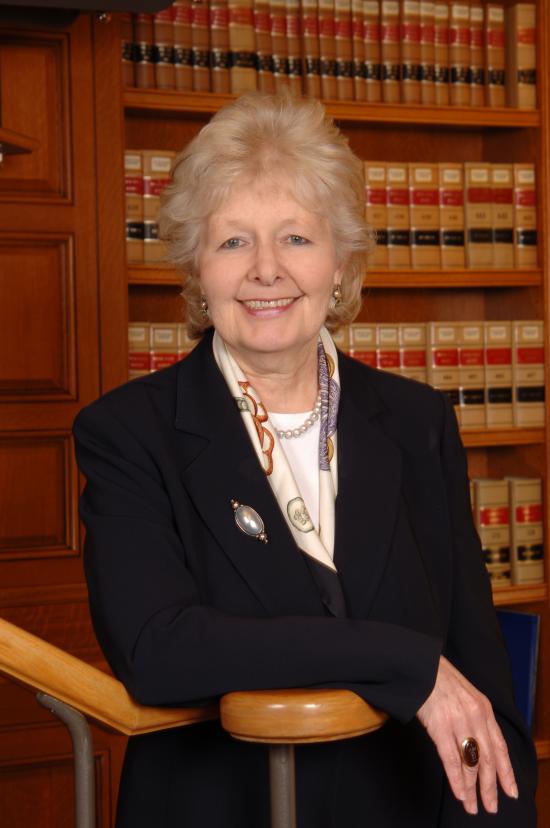Associated Press
BOSTON — Massachusetts Chief Justice Margaret Marshall, who wrote the landmark ruling making the state the first to legalize gay marriage, said Wednesday, July 21, that she’s retiring to spend time with her husband, who has Parkinson’s disease.
Marshall, 66, said she decided to step down in October, four years before the mandatory retirement age of 70, to be with her husband, former New York Times columnist Anthony Lewis. The 83-year-old Lewis, a two-time Pulitzer Prize winner, retired in 2001.
“Tony and I are both at an age where we have learned to value deeply the precious gift of time,” she said. “And so, with deep regret but also with deep conviction, I will relinquish my role as chief justice so that Tony and I may enjoy our final seasons together.”
Marshall was first appointed to the bench by then-Gov. William Weld in 1996, after four years as general counsel and vice president of Harvard University. She was appointed chief justice three years later by Republican Gov. Paul Cellucci.
Perhaps her most enduring — and maligned — legacy on the court was the decision in 2003 that allowed Massachusetts to become the first state to legalize gay marriage. In the 4-3 ruling, Marshall said denying gays and lesbians the right to marriage “works a deep and scarring hardship on a very real segment of the community for no rational reason.”
“It cannot be rational under our laws, and indeed it is not permitted, to penalize children by depriving them of State benefits because the State disapproves of their parents’ sexual orientation.”
The ruling — and justices — were widely criticized by opponents of gay marriage as being judicial activists. Weld said Wednesday that the criticism was unwarranted.
“I knew from early on she was committed to justice for everybody,” he said, adding that he dropped her a note a day after the gay marriage ruling to say “she had done the right thing.”
Cellucci praised her “remarkable tenure,” although he disagreed with her on gay marriage, saying the issue would have been best left to the legislature.
She kept her decision to retire private, even from other justices, until just before her announcement. She declined Wednesday to talk in detail about the gay marriage ruling, acknowledging that “it certainly is a decision that is linked to my time on the court.”
Marshall said she was equally proud of every decision and recalled the day of the hearings in the gay marriage case, after the hundreds who had packed the courtroom left and a handful of people remained as the Supreme Judicial Court took up other matters.
“There were others left in the courtroom, and for them the next case was just as important,” she said. “For me, every case has that importance.”
Kris Mineau, president of the Massachusetts Family Institute, welcomed the news that Marshall was leaving the court, saying the state had been under “Marshall law” since the 2003 ruling.
“In our opinion, her legacy will have a far-reaching negative effect on the health of our commonwealth,” he said.
He said he hoped Massachusetts residents would eventually be allowed to vote on the definition of marriage.
Marshall, a native of South Africa, was the first immigrant and first woman to lead the state’s 320-year-old Supreme Judicial Court. She was a white student leader of the anti-apartheid movement in the 1960s.
She came to the United States as a high school exchange student in 1962, when she first read Alan Paton’s anti-apartheid novel “Cry the Beloved Country,” banned in South Africa.
At Witwatersrand University in Johannesburg in 1966, Marshall led several student organizations, including the 20,000-member National Union of South African Students, for which she helped lead anti-apartheid activities and protests.
Marshall came to the United States in 1968 for master’s work at Harvard and later earned her law degree from Yale University. She passed the bar in 1976, a year before she became a U.S. citizen. She worked at several Boston firms, specializing in intellectual property matters.
Lewis, whom she married in 1984, spent five decades at the Times, the last 32 years writing columns that championed free speech, human rights and constitutional law.
His columns railed against the Vietnam War, Watergate, apartheid in South Africa, and Israeli settlements in the West Bank and Gaza Strip.











